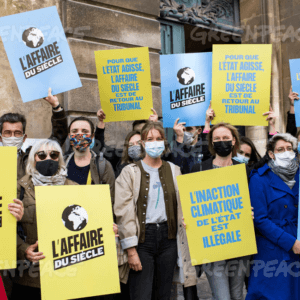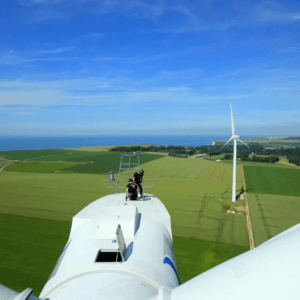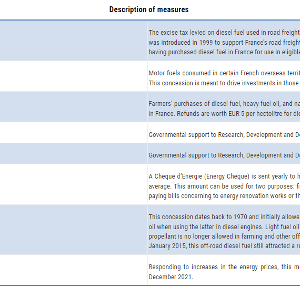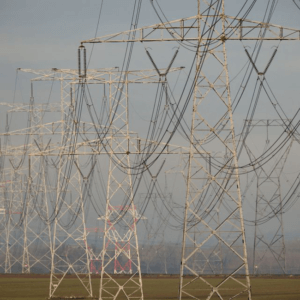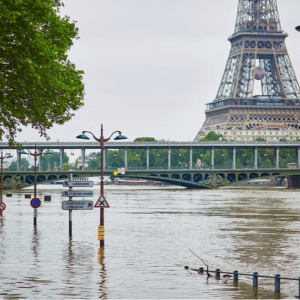On December 18, 2018, the Fondation pour la Nature et l’Homme (Foundation for Nature and Mankind), Notre Affaire à Tous (“An affair that concerns all of us”), Greenpeace France, and Oxfam France launched a climate justice campaign calling upon the French government to repair the ecological damage resulting from their climate inaction. The suit followed an...
Author: Liana Mehring (Liana Mehring)
France will come close to reducing emissions by 50% by 2030 if it does the right things
The Intergovernmental Panel on Climate Change released a synthesis of its three-part Sixth Assessment Report in March 2023. The report warns that without stronger action on climate, the world is on track to warm 2.7°C (5 °F) by 2100. This is well above the goal of keeping global temperature rise below 1.5 °C, which will...
In 2021 the French government paid EUR 8.41 billion in support to fossil fuels
France has limited domestic fossil-energy resources and, as a result, imports most of its oil and natural gas and all of its coal. Nuclear power drives the majority of French energy production and consumption; however, petroleum products still account for about 28% of energy use. All energy products are subject to a standard Value Added...
France’s Vision of the Unity of all Citizens Impedes Efforts to Address the Climate Needs of its Indigenous Peoples
In 2007, the United Nations General Assembly adopted the Declaration on the Rights of Indigenous Peoples. This act elevated the global profile and scholarly engagement with the subject of ‘indigenous people’ and yet the idea of indigenous cultures and rights is still met with resistance in France, both in French academia and among the public...
France’s Agricultural Sector Produced 1.1% of Global Agricultural Emissions in 2021
Agriculture is fundamental to the French way of life at home as well as to its identity abroad. As of 2020 in France, usable agricultural areas represent 269 000 km² or 49% of the country. These are the most recent figures made available by the 2020 Agricultural census, a global data collection process guided by the FAO...
France: A Climate Look Past and Forward
Looking Back 2022: Summer of Extreme Weather Events/ Looking Forward 2023: France’s Embrace of the Bridgetown InitiativeArguably the most important climate event that took place in France in 2022 was a summer of extreme weather events. These weather events – including successive heatwaves, forest fires, droughts, and storms – gave France a foreboding preview of...
Energy Sources in France
Électricité de France (EDF) Energy in France is generated from five primary sources: coal, natural gas, liquid fuels, nuclear power, and renewables. These serve as inputs to France’s power grid system, which is comprised of a centralized electricity grid dominated by nuclear power. In 2020, nuclear power made up the largest portion of electricity generation, at...
France’s Proxy Measures for Greenhouse Gas Emissions
In 2021, quarterly greenhouse gas emissions within the European Union and its member states became available for the first time with estimates published from 2010 through 2022. These quarterly greenhouse gas emissions are compiled and published by Eurostat, the statistical office of the European Union whose mission is to provide high-quality statistics and data on...
Seeks to Convert its Total Passenger Car Fleet to EVs by 2040
France was a pioneer in the automotive industry and is currently the third-largest automobile manufacturer in Europe after Germany and Spain. However, the country imports more cars than it exports. In 2020, France imported $35.5 billion worth of cars and exported $18.9 billion. The French passenger car fleet has grown recently, increasing from around 35 million passenger cars in 2011...
France Faces Considerable Loss and Damage within Its Own Borders and in Its Overseas Territories
The Global Stocktake of the Paris Agreement (GST) is defined by the UNFCCC as “a process for taking stock of the implementation of the Agreement with the aim to assess the world’s collective progress towards achieving the purpose of the agreement and its long-term goals.” The GST is an essential part of the Paris Agreement,...


